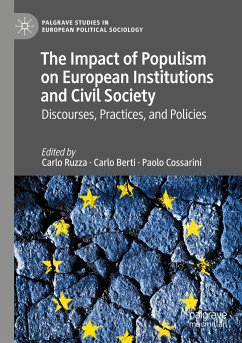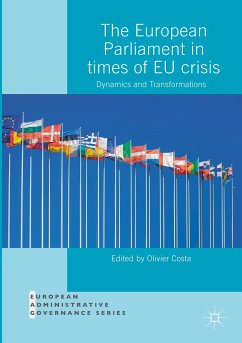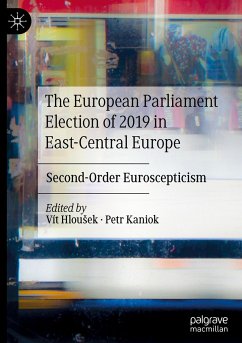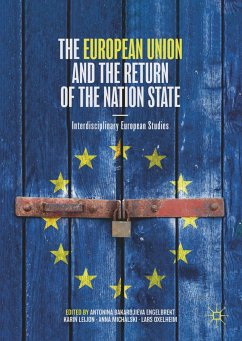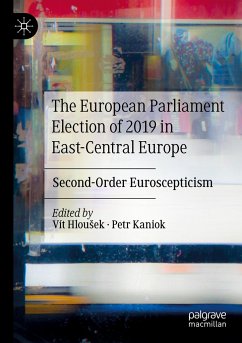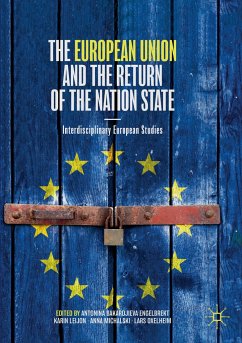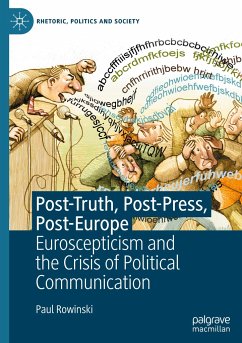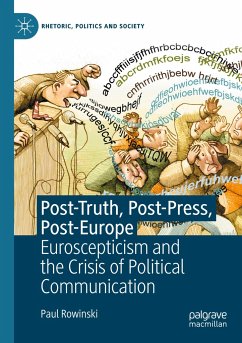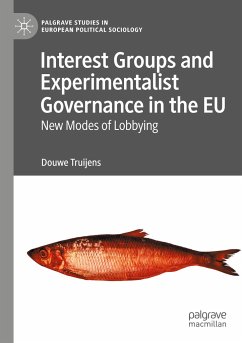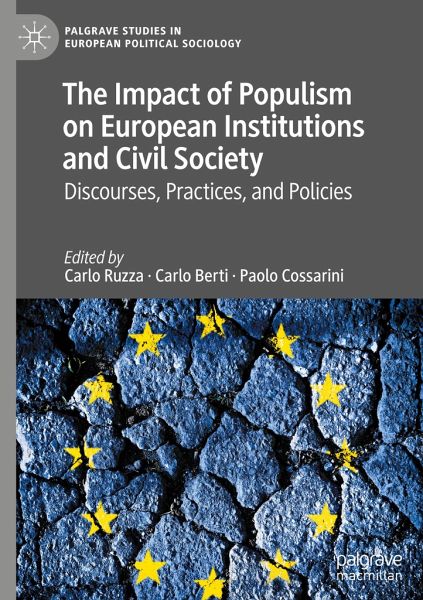
The Impact of Populism on European Institutions and Civil Society
Discourses, Practices, and Policies
Herausgegeben: Ruzza, Carlo; Berti, Carlo; Cossarini, Paolo

PAYBACK Punkte
57 °P sammeln!
What is the impact of populism on the EU? How did the EU institutions and civil society react to the recent rise of populist parties? To answer such relevant questions and understand populism in terms of ideas, political outcomes, and social dynamics, academia needs to engage with institutional actors, civil society organizations, and policy makers. By bringing together academics, members of European institutions and agencies, and leaders of civil society organizations, this edited volume bridges the gap between research and practice. It explores how populism impacted on European institutions ...
What is the impact of populism on the EU? How did the EU institutions and civil society react to the recent rise of populist parties? To answer such relevant questions and understand populism in terms of ideas, political outcomes, and social dynamics, academia needs to engage with institutional actors, civil society organizations, and policy makers. By bringing together academics, members of European institutions and agencies, and leaders of civil society organizations, this edited volume bridges the gap between research and practice. It explores how populism impacted on European institutions and civil society and investigates their reactions and strategies to overcome the challenges posed by populists. This collection is organized into three main sections, i.e., general European governance; European Parliament and Commission; European organized civil society. Overall, the volume unveils how the populist threat was perceived within the EU institutions and NGOs and discusses the strategies they devised to react and how these were implemented in institutional and public communication.



